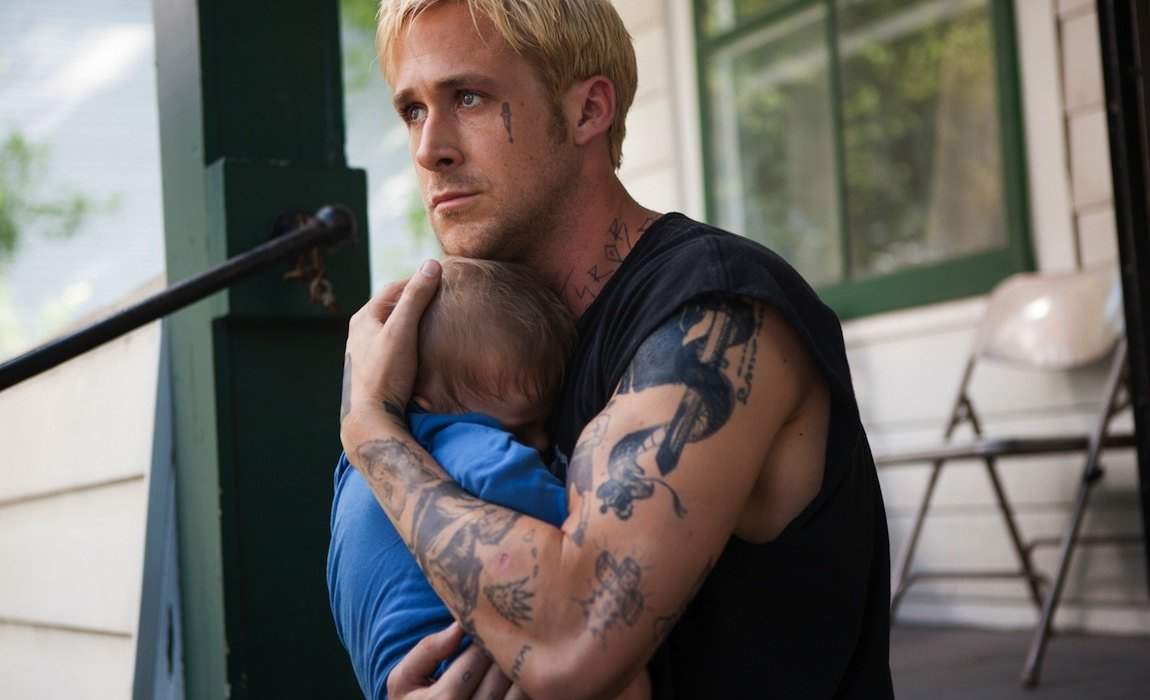The Place Beyond the Pines
An ambitious and twisting crime drama about fathers, sons and responsibility.
Overview
In an attempt to reach the key demographic of 'women aged 14-400', The Place Beyond The Pines opens with a three-minute shot of Ryan Gosling topless. When he does eventually put on a shirt, it's only so that he can ride his motorbike with casually reckless abandon, thereby expanding that key demographic to... 'women'. Thankfully, though, this is not just another 'Ryan Gosling is nice to look at' movie, and as a result we're able to enjoy a far more nuanced and layered performance by the actor.
Gosling plays Luke Glanton, a soulful carny whose heavily tattooed body (complete with dripping dagger beneath the eye) alludes to a troubled past that's never spoken of aloud. When an old flame (Eva Mendes) resurfaces and reveals they have a one-year-old son, Glanton quits his job and turns to robbing banks in an attempt to provide for the child. His accomplice and mentor is the reclusive mechanic Robin, played by Ben Mendelsohn — an actor who appears to have cornered the market in two-bit crims who drink, smoke and speak with protracted drawls. Eventually his and Glanton's activities lead to a run-in with the law, and it's at this point that the movie takes quite a turn.
Instead of following the traditional three-act structure, The Place Beyond the Pines plays more like three chapters, each with their own distinct stories and characters. It's almost like an anti-Forrest Gump, in that instead of one man telling his story to three strangers at a bus stop, it's three strangers telling their separate stories to one man — the audience. In that respect, 'chapter two' follows Bradley Cooper as the earnest but ambitious cop Avery Cross. Like Glanton, he's a father of a one-year-old boy and, also like Glanton, his colleagues (Ray Liotta, Bruce Greenwood) and wife (Rose Byrne) seem to complicate, rather than complement, his life. Eventually Cross's story moves onto a third protagonist, at which point The Place Beyond the Pines attempts to reconcile all three vignettes into one neat, all-encompassing resolution that's either masterful or impossibly convenient, depending on who you listen to.
The film was directed by Derek Cianfrance, whose last (and essentially plotless) film Blue Valentine was a far cry from the myriad of fateful encounters and interwoven acts of providence that take place in The Place Beyond The Pines. This is very much a film about fathers and sons, cause and effect and — some might argue — karmic destiny. It's an ambitious project (and, with a run time of 140 minutes, also a long one); however, Cianfrance and his actors manage to achieve enough drama and tension to maintain your interest right through to the end.





